Enhancing institutional capacity of public authorities and stakeholders and efficient public administration.
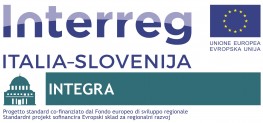
The overall objective of the project was to increase the knowledge and cross-border cooperation of health professionals on the sexual and reproductive health of migrant women, especially those at risk of female genital mutilation and forced marriages, through the development of common guidelines and a sexual and reproductive health index. This enabled health workers to address the growing problem through a common protocol of intervention.
The program area has experienced an increase in the number of migrants from Middle Eastern and African countries due to its proximity to the “Balkan route.” The presence of people from profoundly different cultures poses new integration challenges at every institutional level.
The project aimed to address a topic that has yet been little explored: the protection of the sexual and reproductive health of migrant women from highly patriarchal cultures.
The project has provided for an interdisciplinary approach, with an initial phase dedicated to the assessment of the phenomenon, followed by the establishment of intervention guidelines for social services and healthcare operators. The project also entailed specific training for social services and healthcare operators, with a focus upon overcoming the difficulties of intercultural communication, and specific medical training for the care of migrant women, even in the most serious cases, such as genital mutilation.
The project has been carried out with a cross-border approach for two reasons: the first is that the migration phenomenon affects the cross-border area covered by the Program; as the permeability of the border favours the transit of the migrant population between the neighbouring countries, hence the need for common guidelines. The second reason is the exchange of good practices; as the Italian healthcare facilities have more experience in caring for migrant women from Asia and Africa, while in Slovenia these patients are a new phenomenon. Thus far the Slovenian facilities have mainly encountered difficulties relating to sexual and reproductive health of women from the former Yugoslavia (Bosnia and Kosovo), hence the need for the exchange of good practices and common guidelines.
1) The INTEGRA project has formulated Common guidelines for intercultural communication and relations, as well as on medical techniques for the treatment of women who are victims of genital mutilation. The guidelines are based on well-established good practices, on the exchange of experiences between operators and on the new sexual and reproductive health index established based on the results of the research/activities.
2) The INTEGRA project has trained healthcare professionals with regard to intercultural communications and relations, and the medical techniques to be adopted for patients who are victims of genital mutilation and it has trained intercultural mediators and the creation of new mediators capable of understanding the integration requirements between the communities and the hospital institutions in order to establish a working healthcare relationship.
Lead Partner
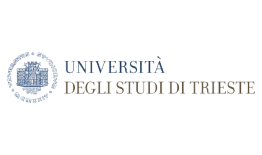
Project partner 1
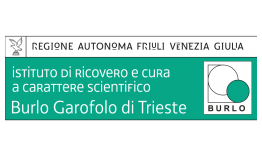
Project partner 2
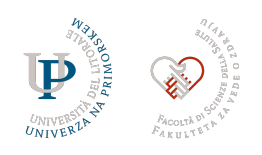
Project partner 3
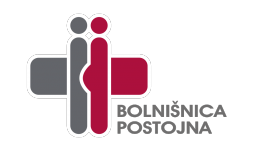
| Poster evento annuale 30/05/2018 INTEGRA_ITA.pdf ( 534 bytes, published on 12 June, 2018 - 10:38 ) | |
| 2019.1.21. Workshop: the role of the Intercultural mediator 2019.1.21 Integra - Workshop Trieste.pdf ( 403 bytes, published on 18 January, 2019 - 15:33 ) | |
| 2019.4.13 Integra - Final Conference.pdf ( 324 bytes, published on 11 April, 2019 - 12:41 ) | |
| 2019.4.15 Integra - Final Training Event.pdf ( 410 bytes, published on 11 April, 2019 - 12:41 ) |
MAIN OBJECTIVES OF THE PROJECT
The overall objective of the project was to increase the knowledge and cross-border cooperation of health professionals on the sexual and reproductive health of migrant women, especially those at risk of female genital mutilation and forced marriages, through the development of common guidelines and a sexual and reproductive health index. This enabled health workers to address the growing problem through a common protocol of intervention.
CURRENT SITUATION OF THE PROJECT IMPLEMENTATION (END OF PROJECT, 30.04.2019)
On Saturday, April 13th at the Auditorium, SSLMIT School, Trieste, the Final Conference of the project took place, with the subject: "INTEGRA's answer to the demands for health and social integration of migrant women" (53 participants). The conference opened with the greetings of the authorities, which were followed by two main parts, one on cultural, social and health aspects, implemented by the two research bodies, and a second one focused on health and social guidelines and indicators.
In the first part the difference between current migrations and those of the past decades has been framed; the changes have been very marked and this fact has been underlined by both Italian and Slovenian partners. Migrations in Slovenia are mostly from the countries of the former Yugoslavia, and now also from Russia and Ukraine, while in Italy they have a more heterogeneous origin. Slovenia is mostly a transit country for other types of migration. There are many common problems among migrant women living in Italy or Slovenia; women are not linguistically autonomous, so they are often accompanied by their children or husbands in order to understand the words of doctors. In Italy there is the figure of the cultural mediator who supports the work of health care professionals and acts as a channel of linguistic-cultural integration, in Slovenia this professionalism has not yet been developed. Foreign women who ask for political asylum show problems of a different nature than those who entered in the past or with work permits or family reunification. The second part of the conference underlined the importance of the linguistic aspect, since knowing the language of the country where one lives means being able to ask for help and to express one’s suffering. Patients who do not speak the language of the host country are less integrated and therefore have less access to care. Through the dissemination of post-natal detection and termination of pregnancy cards, a whole range of behaviours can be understood. Correct information on the use of contraceptive methods reduces the number of voluntary pregnancy interruptions. In Slovenia the distribution of contraceptives is free of charge and this is a goal to be pursued also in Italy. For many other aspects, instead, the clinical histories are very similar, they are complex stories with a 22% rate of high-risk pregnancies. In order to leave a concrete legacy of all the studies carried out within this project, guidelines have been developed to provide useful support to operators.
The conference had an appendix the following Monday with the training event "IRCBG 19004 Reproductive health of foreign women: the country of departure" organized by IRCCS Burlo Garofolo (52 participants). The Burlo medical staff, together with the doctors of the WHO Collaborating Centre of Burlo, focused on where and why patients arrive, and the most suitable way to assist them. In FVG about 30% of women who give birth or are admitted to obstetrics and gynaecology wards are foreigners, mainly from Romania, Albania, Ukraine, Serbia, Morocco, China, Kosovo, Bangladesh, Moldova, Bosnia, Macedonia, Ghana, Nigeria. Reproductive health is strongly conditioned by the culture of origin and therefore operators are often required to have specific skills to dialogue with patients and help them make the right health choices.
https://drive.google.com/drive/folders/1LJmcUlhbRVYHanWrhRbLv75JlDZoobGC...
The products made with the project were presented on this occasion. In particular:
- The video "Laws and women's rights", translated into 10 languages, provides basic information on women's right to health.
https://drive.google.com/drive/folders/1aEajgCmFjDPiy0I4EYAtuhon1HRaHAPo...
- The video "The woman's body", in Italian and Slovenian, shows in succession more than 40 anatomical parts while the narrator's voice reads the name of the illustrated organ.
https://drive.google.com/drive/folders/1m_RMMJHx4-ilqIKiWwD8hQI6d9ch_0I5...
- The brochure "Family planning", translated into ten languages, deals with the themes of the sexual apparatus, contraceptive methods and voluntary termination of pregnancy.
https://drive.google.com/drive/folders/1lpQx6Fu1ZwD7xWg7c-ataDgo5HYPQZ1J...
- The two project reports published by Edizioni Università di Trieste "State of sexual and reproductive health of migrant women: difficulties and good practices" (1292 download) and "Guidelines and indicators of sexual and reproductive health of migrant women" (593 download).
https://drive.google.com/drive/folders/1Ijk3EkMqMmWgK2UuvR4lLjdFFHfhHcsO...
- The monograph published by the University of Trieste "Women, migrations and health. Ensuring transcultural health care".
https://drive.google.com/drive/folders/1Q4ur7iVv6rhwdqn6gF5IW1ZaAJNYEhvV...
In addition, the results of the four training days held at the University of Trieste and the hospitals of Burlo, Isola and Postumia that involved health workers (155 participants) and of the two workshops held in Trieste and Isola addressed to cultural mediators, scholars, operators in the field of associations, etc. were presented (87 participants).
https://drive.google.com/drive/folders/1exbzTwmfgIcNKqh3VSfTiXbrAWrnJvuG...
https://drive.google.com/drive/folders/1D8YuwMHeiQNzrXoFNmw8OraMpqdZMDy1...
Finally, the two institutional tables organised in Trieste and Postojna were also attended by local and regional institutional stakeholders (22 participants).
https://drive.google.com/drive/folders/1g3N7TQ7HtaYpoJS4xfVYTfDwCTmWvXX0...
Following the end of the project, this volume was also published in 2020:
Delli Zotti G., Urpis O. (cur.), INTEGRA e integrazione. La salute sessuale e riproduttiva delle donne migranti: una ricerca transnazionale (INTEGRA and integration. Sexual and reproductive health of migrant women: a transnational study), FrancoAngeli, Milano.
https://drive.google.com/drive/folders/1Q4ur7iVv6rhwdqn6gF5IW1ZaAJNYEhvV...
Full details of the products realized can be found in the three newsletters issued by the Integra project.
https://drive.google.com/drive/folders/1uaR5JPmm27haET-iKWlltmkoo6t1REZ-...